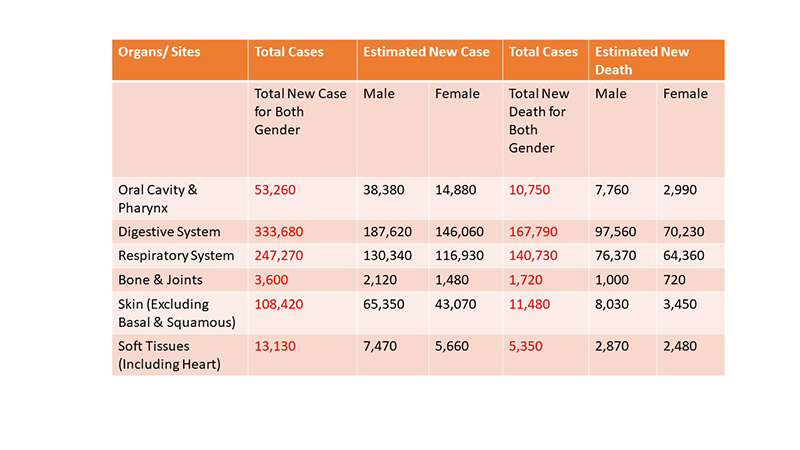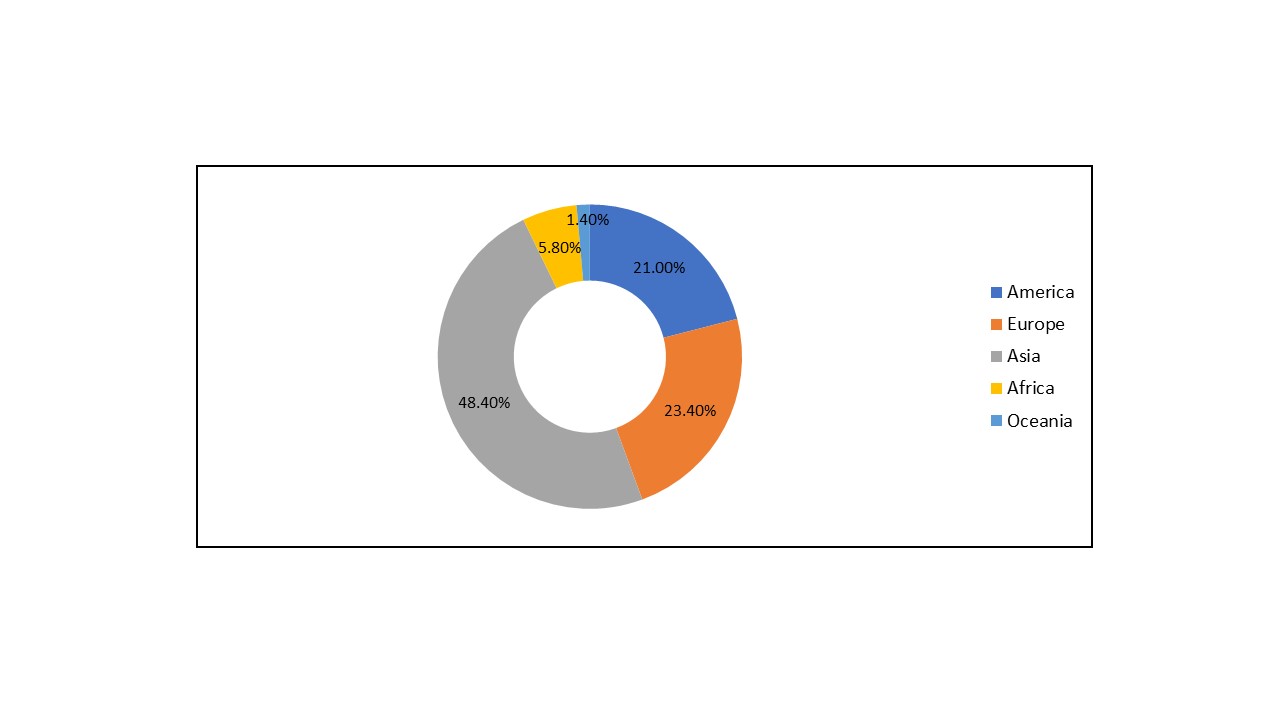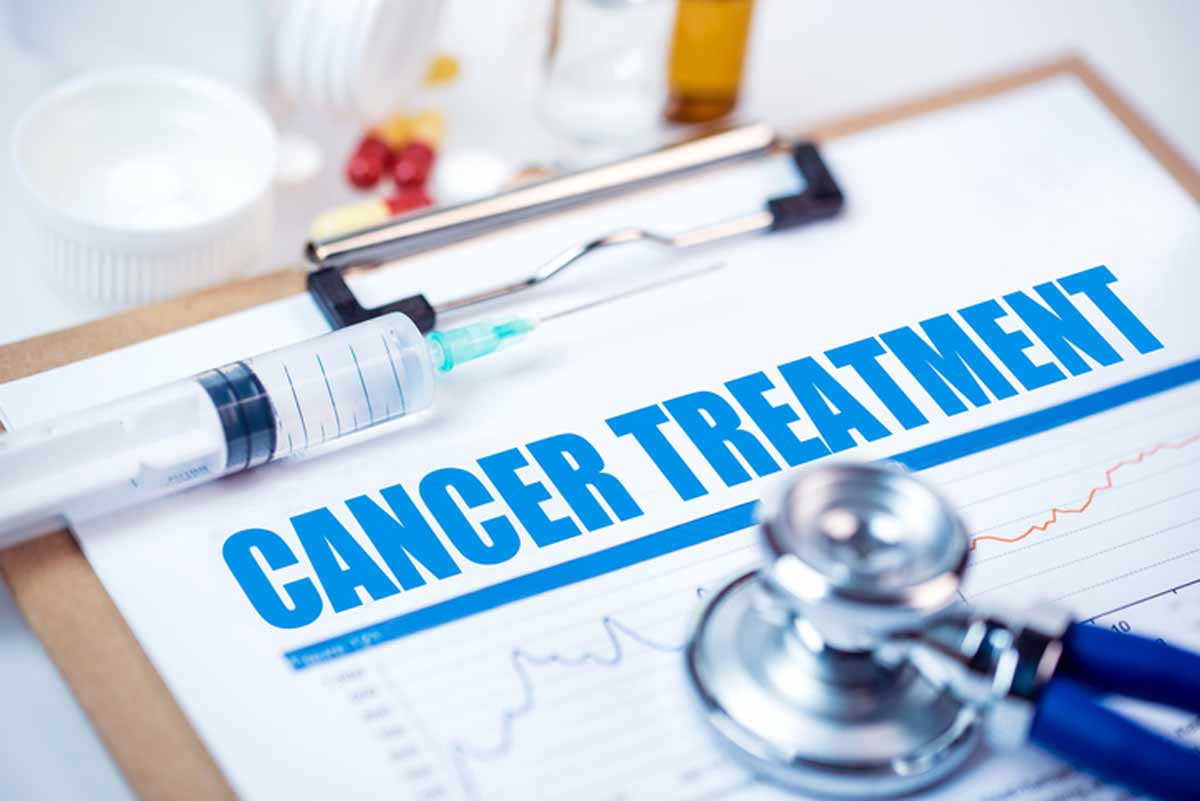COVID-19 Impact on Cancer Treatment in Healthcare Industry
The coronavirus pandemic has made an unbelievable effect on global economy system and as well as on daily lives of human beings. The impact on the healthcare sector has been adversely affected too and a huge burden is developed on already pinched healthcare sectors across the globe. Continuous research on coronavirus shows that the COVID-19 pandemic has elevated the psychological distress in both general population and among in high risk population.
Till now, July 2020, it became obvious that the novel strain of coronavirus or COVID -19 has major impact on the healthcare system in United States. The Surgeon General, American College of Surgeons and Centers for Medicare and Medicaid Services all are stated that the issue of delaying or cancelling of non-essential medical and surgical services to decreases the exposure risk of the virus and conserve resources for the expected large number of infected.
Researcher and oncologists should be curious or terrified because patients suffering from any type of cancer are at higher risk for bad outcomes. This is because of their immunity is very low due to taking cancer treatment and chemotherapy.
The impact of COVID-19 on cancer treatment market are describe by some pointers such as impact on patient mental health, impact on treatment, impact on ongoing care, impact on pharmaceutical supply chain, impact on drug price, impact on drug demand, impact on clinical research, impact on healthcare economy, strategic initiative taken by pharmaceutical industries and government and conclusion.
IMPACT OF COVID-19 ON PATIENT MENTAL HEALTH
Due to the people suffering from cancer may feel depressed due to home quarantine effect. Patients are also in fear of getting infected by the virus or they can’t survive if they are infected. There are hundreds and thousands of such patients who needed diagnosis, treatment and care, but are denied or delayed due to obvious reasons.
The whole healthcare system concentrated on diagnosis, treatment, prevention and control of coronavirus infection. Moreover, the healthcare professionals and doctors also want to protect their regular patients from the COVID-19 infection. During pandemic many regular patients are usually miss opportunities for timely check-up, diagnosis and treatment of the cancer. Due to this patient don’t go for the regular check which ultimate effect the treatment as well diagnosis market.
IMPACT OF COVID-19 ON TREATMENT
The requisite to divert resource and healthcare staff to label the pandemic has resulted in the delayed cancer and oncology screening programs for asymptomatic patient population in various countries.
In March 2020, according to the Public Health Wales and Government announces suspension of non-urgent surgical admission, surgical procedures and outpatients’ appointments in order redirect healthcare professionals and resources to support the response to Novel Coronavirus Pandemic. The Government of Welsh has also agreed the recommendation of Public Health Wales to temporarily suspend or delay some the population-based oncology screening programmes. This will affect the breast cancer test, cervical cancer test and bowel cancer screening.
Due to the pandemic surgeries related to the cancer has been delayed because of reduced operation theatres space and ventilator systems in hospitals. Patients on radiotherapy are also affected by the pandemic because short course of radiotherapy can be used to delay surgery in patients like rectal cancer. In cancer radiotherapy has a major role in cancer treatment both as palliative therapy as well as curative therapy.
However, American Society of Radiation Oncology in the USA have issued a guideline related to the radiation therapy, that radiation therapy should be prioritizing for patients with rapidly proliferating tumors, such as head and neck cancers and low prioritizing for patients with less disease symptoms to narrow down the exposure of patients to infection, hypofractionation regimens are also being used.
- 1. ESTIMATED NEW CANCER CASES AND DEATH IN UNITED STATES, 2020IMPACT OF COVID-19 ON ON-GOING CARE

As the patients are afraid for getting infected with the COVID-19 infection on-going care treatment also affected.
For instance,
- Telecommunication/ tele-consultations were used by the primary care provider as well as patients for the treatment guidance or appointments instead of face to face conversation unless and in person consultation is deemed necessary.
In addition, psychological stress in patients undergoing cancer diagnosis and treatment can increase in the current situation as patients may struggle to reach their normal support networks, and psychological support may be minimized by healthcare systems.
IMPACT OF COVID-19 ON CLINICAL TRAILS
Apart from the treatment, diagnosis and ongoing care implications coronavirus has effect on various clinical trials. Due to the coronavirus pandemic many pharmaceutical industries have suspended the clinical trials. In a study it is estimated that approximately over 12,000 clinical trials are going on in the area of cancer. Halting or suspension of these clinical studies will have long lasting financial, educational and health consequences.
On an average the cost of oncology phase III clinical trial approximately USD 20 million, which will impose big financial hurdle on pharmaceutical, biotechnological and lifesciences industries for again gaining approval for the fresh trail and patient identification. Beyond this patients already enrolled in clinical trial loss their potential healthcare benefits or advantages provided by the industries
FIGURE 1. ESTIMATED GLOBAL CANCER INCIDENCE (INCLUDING BOTH GENDER, AGE & ALL CANCER TYPE)
 IMPACT OF COVID-19 ON PHARMACEUTICAL SUPPLY CHAIN
IMPACT OF COVID-19 ON PHARMACEUTICAL SUPPLY CHAIN
Due to the pandemic, export-import restriction increases which created problems for pharmaceutical supply chains and impact of pandemic also created problem on two of the largest global manufacturer or producer of generic drugs and active pharmaceutical ingredient (APIs): India and China. Within the global economy, China is highly holistic and has spectacular transport facilities or networks, meaning disruptions to the supply chain go far beyond regional concerns.
As the coronavirus pandemic continuously rising supply chains are being shattered, with many industries having to illustrate Uncertainty plans. In February 2020, FDA announced the supply chain disruption of essential medical products services import from China. FDA also warned the American Pharmaceutical Industries, that if outbreak or pandemic persist for long time industries might facing shortage of critical medicinal products.
IMPACT OF COVID-19 ON PHARMACEUTICAL DRUG PRICE
As the pandemic is increasing continuously, the cancer patients are facing major problems in treatment, diagnosis and medication. As FDA grant the fast track approval to the Gilead Pharmaceutical “Remdesivir” to the critical patients of coronavirus the price of drugs drastically increased. Distributors and suppliers are selling the drug according to their mind with 50% to 70% above rate as compared to the original rate. Due to this governments have made strict rules for the distributors, suppliers as well as pharmaceutical industries.
IMPACT OF COVID-19 ON DRUG DEMAND
As the patients are afraid of getting infected and transportation facilities are drastically disrupted the demand of cancer drugs are affected by the coronavirus pandemic. Due to COVID-19, social distancing increases and a smaller number of patients visit the cancer centres which delays in elective surgeries. As a result to this, the drug demand decreases.
For instance,
- Merck’s & Co., Inc. have been facing lower administration and usage trends of various cancer medicines, such as, Keytruda which is used as first line medicine for renal cell carcinoma and lung cancer. The sale of Keytruda decreases because of new patients visits decreases which may have impacted sales and alliance revenues from oncology drugs in the second quarter
IMPACT ON HEALTHCARE ECONOMY
Despite this private healthcare sectors have immense contribution to the economy, it has been facing numerous challenges from the pre Covid-19 times, which have only worsened with the pandemic. According to reports, healthcare sectors has been one of the fastest growing and largest services providers in India contributing to both employment as well as revenue. India being fourth largest employment generator, it was expected to reach USD 372 Billion by 2022 and growing with the CAGR of 16%.
The hospital industry alone was expected to grow from Rs. 4 trillion (USD 61.79 billion) in FY17 at a CAGR of 16-17% to reach Rs. 8.6 trillion (USD 132.84 billion) by FY22. The diagnostics industry in India was valued at USD 4 billion in FY18-19 where the organized sector's share in this segment is nearly 25% (15% in laboratories and 10% in radiology).
STRATEGIC INITIATIVE TAKEN BY PHARMACEUTICAL INDUSTRIES AND GOVERNMENT
To tackle the pandemic situation and increases the company revenue and growth, company now opting digital media such as telecommunication, mobile applications, webinars and other digital media to support the patient requirement.
As the pharmaceutical companies facing major issues related to the price, supply and demand governments have to take some major step to overcome the issue. Due to this, the Indian pharmaceutical industries have realised the need to generate its own local sourcing units and acquire alternative strategies for reducing the dependency on China.
For instance,
- In favour of pharmaceutical department, the Government of India has decided to promote domestic manufacturing of active pharmaceutical ingredients/intermediates or key starting materials. Government also approved the scheme, with a financial investment of USD 390 Million which will promote the bulk drug park.
This signifies that various initiatives taken by different organizations are helping to tackle the effect of COVID-19 on demand of APIs needed for manufacturing of drugs.
CONCLUSION
It can be concluded that the COVID-19 pandemic situation is having a negative impact on the global cancer treatment market affecting the price, supply and demand of the cancer treatment products. However, in the crisis call, pharmaceutical companies work closely with healthcare professionals, customers, patients and other healthcare organization for the sake or betterment of public health.
However, companies as well as state government trying to focus on how they can make the most effective and best contribution to control the spread of the virus and save lives. They also ramping up production to new level and ensure that speed doesn’t affect or destroy the quality of products.





 IMPACT OF COVID-19 ON PHARMACEUTICAL SUPPLY CHAIN
IMPACT OF COVID-19 ON PHARMACEUTICAL SUPPLY CHAIN

